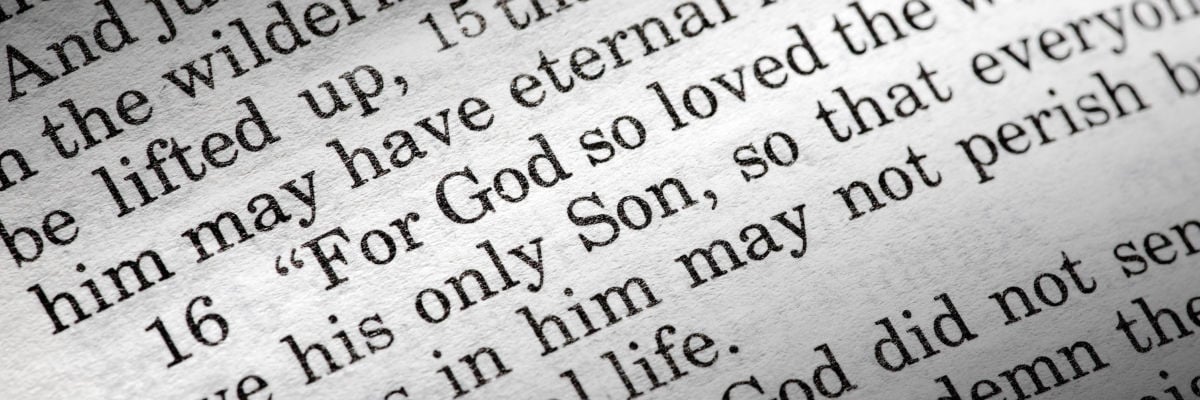
Homily for the Fourth Sunday of Lent, 2021
For God so loved the world that he gave his only Son,
so that everyone who believes in him might not perish
but might have eternal life.-John 3:16
John 3:16! What could be more beautiful than this “God so loved?” Well, only to hear it again and again. But we should not let familiarity numb us to its staggering implications.
St. John uses this same “loved” in exactly the same form two other times in his sublime Gospel. In the Last Supper discourse to his apostles, he tells us that Jesus, when he had loved those who were his own, “loved them to the end,” and further on he recounts the Lord saying, “As the Father loved me so I have loved you.”
So God loved his Son and his Son loved us, and he so loved the world (that’s us sinners) that he gave his same Son so that we might not perish, but have everlasting life.
This rescue from perishing has a stunning and unexpected quality. It means simply to be lifted up into the life of God, who is Love; to be included in the love between the Father and the Son and to have them love us as they love each other. Think of the amazing “as the Father loved me so I have loved you.” This is the eternal love of the Father for the Son, their mutual love who is the Holy Spirit.
This is no mere sentiment. It is the ultimate being, source and end of all things; that is, God and all that God has made. God is the supreme good, subsisting Love, so all he is and does is a work of love: in himself, in creation, in nature, grace, and glory. This is simply how indescribably great God’s love for us is.
To “perish” here means to be turned away from attaining the end for which we were made, which is eternal life, the life of the Holy Trinity just briefly described. The only thing that can block this is sin, which is a turning away from our end. If we are lifted up into the love of God, then we cannot at the same time be turned away from him. When we are turned back to him, our sin is no more.
You see, we can only turn to God if he turns us first. His love is, as is all love, attractive; it is a drawing toward him who is infinitely loveable. Once he has drawn us, there is no more sin, no more turning away, we are caught in his gravity and cannot break away.
This is why sin is such a mystery and a misery. It is the only thing of which we can think or speak that God did not make. He declared all that he had made “very good,” which means it is all both loveable and the effect of love. Everything he made was turned to him, was in his orbit.
So what about sin? If we look carefully, we can see that there is another element in John 3:16 along with God’s love for us: faith. Faith is spiritual sight, the acknowledgment of divine things. If we will not look at these things, we cannot be attracted to them. That is why all sin involves some error in judgment, some way in which our practical mind refuses to look at what is true about God and our own actions. Sin is willful blindness. This is the only way we could slip out of the orbit of the gravity of love and turn away from our end—not toward goodness, but toward nothing at all, since sin is a “no-thing” that God did not make.
If, coming this far, this all seems a bit hard to take in, then don’t let love become complicated in your mind. Just consider these two facts that St. Thomas Aquinas points out in his commentary on today’s Gospel text:
But did God give his Son with the intention that he should die on the cross? He did indeed give him for the death of the cross inasmuch as he gave him the will to suffer on it. And he did this in two ways. First, because as the Son of God he willed from eternity to assume flesh and to suffer for us; and this will he had from the Father. Secondly, because the will to suffer was infused into the soul of Christ by God.
Christ, who is true God, so loved us that he already had willed from all eternity as God to come and suffer and die for us. And Christ, who is true man, was given the love in his soul to will this as a man. His love is like the Father’s—intense, focused, unflinching, everlasting, powerful—and it dwells in a God who has a human heart beating as does ours, as it draws us to him, turns us back to him.
Did he not say, “And I, if I be lifted up from the earth, will draw all things to myself?” Indeed, “so God loved the world”!



